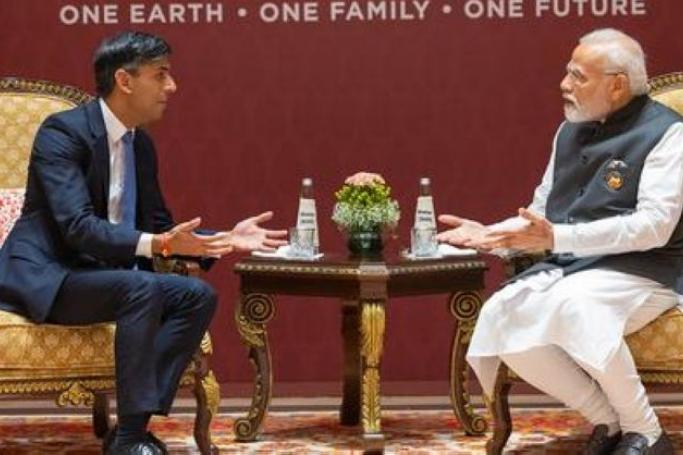Mizzima
The British Prime Minister Rishi Sunak did not even raise Indian arms sales to the Burmese military when he met Prime Minister Modi at the G20 summit earlier this month.
According to Burma Campaign UK, P.M. Sunak’s lack of engagement with Modi over the arms sales was revealed in the response to a question raised in the UK Parliament.
It is the official foreign policy of the British government to advocate for an end to arms sales to the Burmese military.
India is one of the few significant suppliers of arms and equipment to the Burmese military. The others include Russia, China, and Singapore.
Since the Burmese military began its attempted coup in 2021, it has unleashed weapons designed for fighting armies against the civilian population of the country, forcing more than 2 million people from their homes, bombing schools and hospitals, and arresting almost 25,000 people.
A report earlier this year by the United Nations Special Rapporteur on the situation of human rights in Myanmar revealed that India-based entities have supplied $51 million worth of arms and related materials to the military since the attempted coup in February 2021. India had already faced criticism for continuing to arm the Burmese military after the military offensives against the Rohingya in 2016 and 2017. UN investigators later described these as genocide.
In a written Parliamentary answer to Imran Hussain MP on 22 September, the Foreign Office Minister Anne-Marie Trevelyan said:
“Discussions between the Prime Minister and Prime Minister Modi covered the breadth and depth of the UK-India relationship, ranging from trade to cooperation on education, research and defence. Although the provision of arms to Myanmar was not discussed, we continue to raise this issue bilaterally with those who are reported to be providing arms to the Myanmar military.”
Speaking on P.M. Sunak’s failure to discuss arms sales to the Burmese military following the Rohingya genocide, Imran Hussain MP, Member of Parliament for Bradford East said:
“The appalling atrocities and brutal crimes against humanity that were committed against the Rohingya by the Burmese military and military-enabled militias created one of the largest refugee crises that the world has seen, left a still unknown number of Rohingya families dead, and inflicted irreparable damage, so it is unbelievable that despite this, some nations are still supporting the Burmese military regime with arms and equipment.”
He added: “Just this week, the UN Human Rights Council heard again of indiscriminate attacks by the Burmese military on civilians, along with the abject failure of the Burmese authorities to investigate human rights abuses and acts of genocide. It is therefore shameful that when presented with the opportunity to raise the supply of arms to the Burmese military with foreign leaders at the recent G20 summit, the Prime Minister once again ducked his responsibility to some of the world’s most vulnerable and persecuted.”
Prior to Rishi Sunak’s premiership, the British government had, with partners, successfully lobbied countries like Serbia, Ukraine and Japan to end arms sales to the Burmese military.
Karin Valtersson, Campaigns Officer at Burma Campaign UK responded: “Instead of human rights, Rishi Sunak appears to be prioritising economic opportunities, and India as a bulwark against China. However, with Modi becoming increasingly authoritarian domestically, as well as supporting brutal regimes internationally, it seems like a flawed approach to be subservient to Modi at the expense of the people of Burma, who want a genuine democracy and to be free of tyranny.
“On China, Foreign Secretary James Cleverly stated that engaging with China ‘doesn't mean that we shy away from the tough conversations. It's about voicing our concerns directly - face to face.’ When Rishi Sunak met with Modi face to face, he didn’t voice concerns directly, instead he did shy away.”












